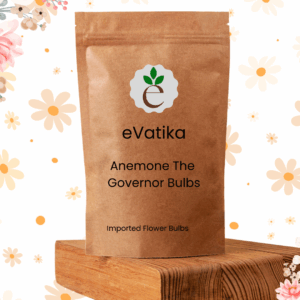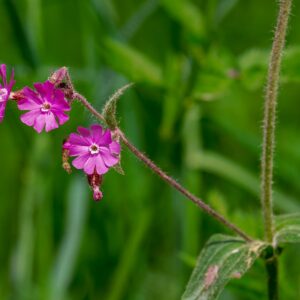Candytuft Seeds

- Free worldwide shipping on all orders over $100
- Delivers in: 3-7 Working Days Shipping & Return
🌼 What Are Candytuft Seeds?
Candytuft seeds come from Iberis species, a group of charming flowering plants known for their compact growth and clusters of bright, fragrant blooms. Native to Europe and the Mediterranean, candytuft is widely cultivated as an annual or perennial in rock gardens, borders, and containers. The name “candytuft” is derived from the ancient city of Candia (modern-day Heraklion in Crete).
🌿 Botanical Features
-
Seed Shape: Small, oval, and flat
-
Flower Colors: White is most common, but also found in pink, lilac, and purple shades
-
Bloom Form: Small, four-petaled flowers densely packed in rounded or flat-topped clusters
-
Plant Height: 6–12 inches tall
-
Foliage: Narrow, lance-shaped green leaves
-
Germination: 10–15 days at 18–21°C (65–70°F)
-
Growth Habit: Low-growing, spreading mound—ideal ground cover
🍽️ Culinary & Traditional Uses
Candytuft is primarily ornamental and not used for culinary purposes. Its value lies in:
-
Visual Use:
-
Stunning edging plant or groundcover
-
Excellent in rock gardens and containers
-
-
Symbolism:
-
Traditionally associated with indifference in the language of flowers
-
🏥 Medicinal & Practical Benefits
While not widely used in modern herbal medicine, some species of candytuft have been used historically:
-
Traditional Use:
-
Iberis amara (bitter candytuft) has a history in European herbalism
-
Sometimes included in traditional remedies for digestive issues
-
-
Modern Notes:
-
Included in some homeopathic preparations
-
Primarily valued for aesthetics and pollinator support
-
-
Pollinator-Friendly:
-
Attracts bees and butterflies in spring and early summer
-
🌱 Growing Candytuft from Seed
Step-by-Step Guide:
Sow Indoors (for early blooms):
-
Start 6–8 weeks before the last frost
-
Sow seeds on the surface or lightly cover with soil
-
Maintain 18–21°C (65–70°F) and keep moist
Direct Sow Outdoors:
-
After danger of frost has passed
-
Thin seedlings to 6–9 inches apart
Soil & Water:
-
Prefers well-drained, slightly alkaline to neutral soil
-
Avoid soggy soil—candytuft dislikes wet roots
-
Moderate watering once established
Sunlight:
-
Full sun (at least 6 hours/day)
-
Tolerates light shade in hot climates
Maintenance:
-
Shear back after flowering to promote compact growth and possible rebloom
-
Suitable for edging, walkways, or mass plantings
🔍 Fun Fact
Candytuft is one of the earliest spring bloomers, often flowering when little else does. Its dense clusters of blooms make it a favorite for early-season pollinators—and it’s deer-resistant too!
Your email address will not be published.


























Reviews
There are no reviews yet.